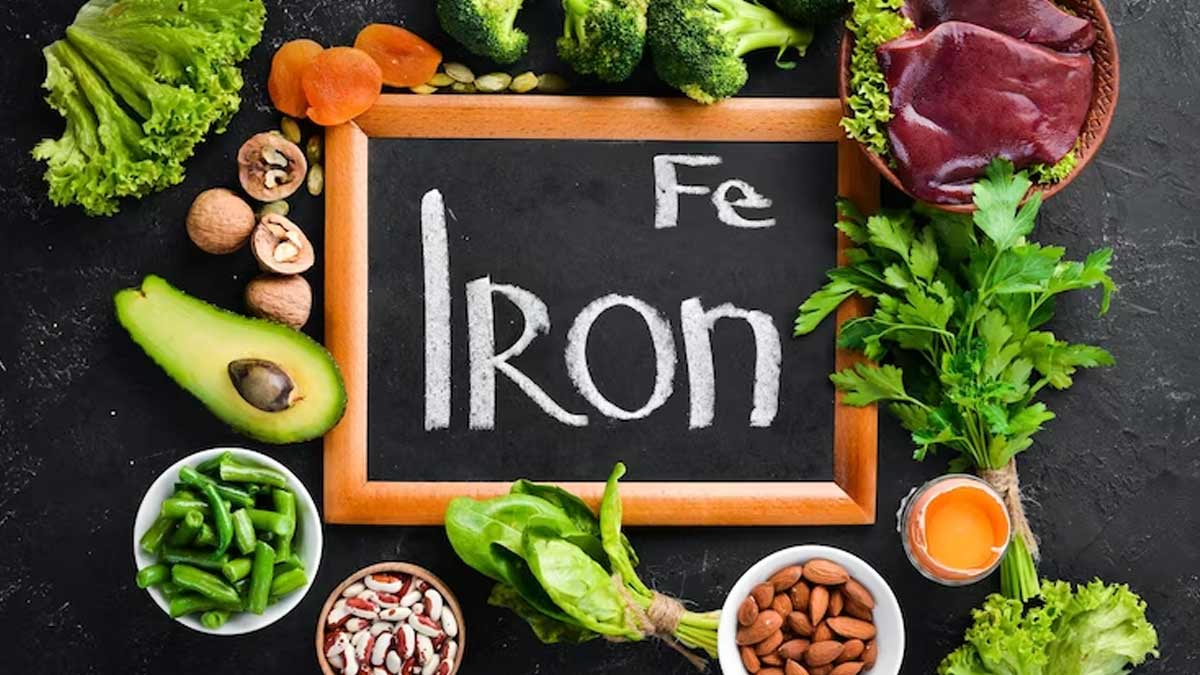
Do you wake up, dragging yourself out of bed, just to be exhausted by the afternoon? Is the post-noon slump a part of your daily routine, regardless of how much sleep you have? While stress and poor sleep are frequent culprits, a less likely yet very pervasive problem that might be undermining your energy is iron deficiency.
In an exclusive interaction with the editorial team of Onlymyhealth, our expert, Dr Pooja Pillai, Consultant – Physician and Diabetologist, Aster CMI Hospital, Bengaluru, explained that iron deficiency, and its more severe counterpart, iron deficiency anaemia, is the most prevalent nutritional deficiency globally. “Iron is needed to make haemoglobin, which is the protein in red blood cells that carries oxygen through your body. And, when iron is deficient in the body, every cell will be gasping for air, resulting in intense and long-lasting fatigue,” she said.
Symptoms of Iron Deficiency
The tiredness associated with low iron is not just ordinary tiredness; it's an intense lack of energy that significantly impacts your day-to-day activities. Iron deficiency can, however, show itself in some other manner. If you always feel fatigued, Dr Pillai suggested observing these other signs:
- Pale Skin (Pallor): Since there is less haemoglobin, your skin will also be paler.
- Breathlessness: Your body cannot provide sufficient oxygen to the muscles and tissues.
- Heart Palpitations: The heart must work harder to circulate blood that has less oxygen.
- Headaches and Dizziness: Less oxygen to the brain.
- Brittle Nails or Spoon-Shaped Nails (Koilonychia).
- Sore or Inflamed Tongue.
- Pica: Non-food cravings for ice, dirt, or clay.
- Restless Legs Syndrome.
“If any of these symptoms are familiar, it is important to see your doctor. A routine Full Blood Count (FBC) test, with an iron study, will accurately diagnose iron deficiency. Self-medicating and self-diagnosing with iron supplements is not recommended, since too much iron can be toxic,” she added.
Also Read: Can Lemon, Toothpaste, and Turmeric Really Remove Tan? Experts Reveal the Truth

What to Eat if You’re Iron Deficient
Dr Pillai highlighted that iron deficiency can be corrected with dietary modifications. Iron exists in two forms, and being aware of the distinction is essential to getting the most in your diet. These include
1. Heme Iron (Easily Absorbed): Occurs only in animal products; it is the most easily absorbed form of iron.
Red Meat: Beef, lamb, and organ meats (such as liver) are great sources.
Poultry: Particularly the dark meat of chicken and turkey.
Fish and Seafood: Clams, sardines, oysters, tuna.
2. Non-Heme Iron (Less Easily Absorbed): In plant foods and fortified foods.
- Legumes: Lentils, chickpeas, kidney beans, navy beans, black beans.
- Dark Leafy Greens: Collard greens, kale, spinach.
- Nuts and Seeds: Pumpkin seeds, cashews, sesame seeds.
- Dried Fruit: Apricots, prunes, raisins.
- Fortified Foods: Iron-enriched bread, cereals, and pasta.
“The secret to releasing non-heme iron is to combine it with absorption promoters. The strongest one is Vitamin C (Ascorbic Acid). Vitamin C assists in transforming non-heme iron into a form that your body can better utilise,” explained Dr Pillai.
Iron-Boosting Food Combinations
Here are a few iron-boostong food combinations Dr Pillai suggested:
- Lemon juice was squeezed into the lentil soup.
- Spinach salad with strawberry slices or citrus wedges and bell peppers.
- Fortified cereal with orange juice (although steer clear of high calcium milk, see below).
- Black beans and rice with salsa (tomatoes and peppers) on top.
Even small amounts of meat, poultry, or fish with a non-heme iron source will greatly increase absorption. This is referred to as the "meat factor."

Also Read: Are You Getting Enough Protein? Here's How To Find Out
What Not to Eat if You’re Iron Deficient
Just as some foods increase iron absorption, others inhibit it. To maximise your iron-containing meals, avoid or separate as much as possible the following:
- Phytates/Phytic Acid: In whole grains, cereals, nuts, and legumes. Healthy, but don't count on them as your only source of iron. Soaking and sprouting will decrease phytate levels.
- Calcium: In milk, cheese, yoghurt, calcium-enriched foods, and supplements. Don't take high-calcium foods or supplements simultaneously with your principal meal containing iron or an iron supplement. Take them hours apart.
- Polyphenols/Tannins: In tea (particularly black tea), coffee, cocoa, red wine, and certain herbs and spices. Avoid having tea or coffee with meals or iron supplements. Wait at least one to two hours before or after consuming them.
Bottomline
Persistent fatigue is a cry from your body that you should not ignore. Start with a medical diagnosis, know the critical role of iron and adjust what you eat can be a great move towards regaining your vitality and sense of well-being. By concentrating on iron-fortified foods and intelligent food combinations, you can positively fuel your body's capacity to transport life-sustaining oxygen and say goodbye to that relentless fatigue.
Also watch this video
FAQ
Q1: How soon will you notice improvement in energy after correcting iron deficiency?
A: If you have been diagnosed with iron deficiency and initiate a proper course of treatment (usually supplements and dietary interventions as advised by your doctor), you should be able to experience an improvement in fatigue within a few weeks, although completely recharging your body's iron reservoir takes several months.Q2: Is a vegetarian or vegan diet more likely to cause iron deficiency?
A: Yes, since heme iron (the most easily absorbed) is present in animal foods only, vegetarians and vegans must watch their iron very closely. They must frequently eat almost double the amount of non-heme iron and regularly combine it with Vitamin C to optimise absorption.Q3: May I have an iron supplement with my coffee in the morning?
A: No, this is highly discouraged. The tannins and polyphenols in coffee can significantly inhibit the absorption of non-heme iron found in supplements and plant-based foods. It is best to take your iron supplement on an empty stomach with a glass of orange juice (for Vitamin C) and wait at least one to two hours before consuming coffee or tea.
How we keep this article up to date:
We work with experts and keep a close eye on the latest in health and wellness. Whenever there is a new research or helpful information, we update our articles with accurate and useful advice.
Current Version
Oct 06, 2025 12:29 IST
Modified By : Tanya SrivastavaOct 06, 2025 12:29 IST
Published By : Vani Malik